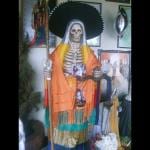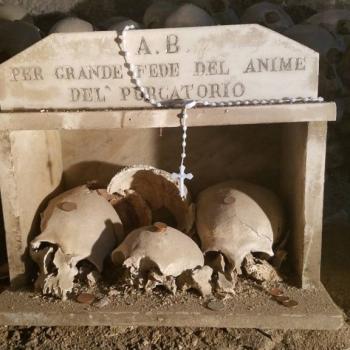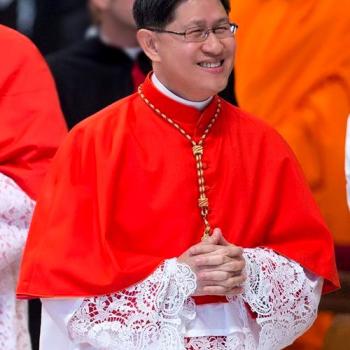
“The Bible has returned to the palace,” Bolivian interim President Senator Jeanine Áñez said when taking office last week. A few days earlier, Fernando Camacho, one of the leading voices in the process that led to Evo Morales’s resignation, entered the Bible with his hands in the same building and said that “God” would return to “government.”
Both are Catholic and have been supported by conservative sectors of the Church and evangelical leaders to weaken Morales.
In recent years, mentions of God and Bible passages seem to have multiplied in political discourse, and evangelical support has become instrumental in the rise of right-wing leaders in Latin America and the United States.
- Royalists occupy positions in Brasilia and rehabilitate ultra-conservative Catholic group
- Uprising against Universal Church leads to death and diplomatic crisis in African country
In Brazil, evangelicals are President Jair Bolsonaro’s main electoral base. In the United States, it’s no different – Donald Trump had the support of evangelical churches to be elected.
For American historian Andrew Chesnut, author of dozens of books and articles on the growth of Pentecostal churches, the strong influence of evangelicals on the rise and fall of political leaders is one of the main “trends” in the current politics of the American continent.
What explains this growing influence of religion on the politics of countries in the continent?
“Even in Mexico, where the Pentecostal population is small at only 8 percent, a political party founded by a Pentecostal pastor helped elect the current president of the country, Andrés Manuel Lopez Obrador,” Chesnut told BBC News Brasil.
“Evangelical political influence is one of the most important political trends of the last four decades on the American continent,” adds the professor, who teaches at Virginia Commonwealth University and is the author of several publications on the role of religion in Latin America, including Born Again In Brazil: The Pentecostal Boom and the Pathogens of Poverty.
But what explains this growing influence of religion on the politics of countries in the continent? And why have evangelical churches become increasingly popular among Latin Americans?
In an interview with BBC News Brazil, Chesnut listed 5 factors that help answer these questions: the ideological cohesion of evangelicals, which would facilitate political articulations; the fact that the rites of the evangelical churches are more “consistent” with aspects of Latin American culture; the adoption of less strict rules for the formation of clergy, allowing greater insertion in the working classes; the creation of support networks in underserved communities; and the ability to echo thoughts shared by conservative sectors of the middle and upper classes.
Growth of evangelical churches – and their entry into politics
The American continent has experienced a sharp drop in the number of Catholics, while there has been a large increase in the evangelical population.
According to the Pew Research Center, the main research center for religions, from 1900 to 1960, Catholics were 94% of the population of Latin America.
But that percentage has dropped dramatically. A 2014 survey of the same institute showed that 84% of respondents grew up as Catholics, but only 69% continued to identify themselves as such.
In contrast, only 9% of Latin Americans were raised as evangelicals, but 19% say they follow this religion today. In Brazil, the percentage of evangelicals is even higher: according to Datafolha survey, they now account for 29% of all Brazilians, while Catholics ceased to be a majority, representing 50% of the population.
In Brazil, evangelical sectors form one of Jair Bolsonaro’s main bases of support.
According to Andrew Chesnut, who has been studying the Pentecostal movement for 25 years, an important feature accompanies the growth in the number of evangelicals on the American continent: the political engagement of leaders and members of this religion.
The researcher points out that Catholics are a more “heterogeneous” group, with segments linked to the left and others to the right. Such plurality would in practice hinder coordinated political mobilization.
“Within Catholicism you have conservative, Opus Dei-linked sectors, for example, and more progressive ones, like members of liberation theology. So there is more diversity and that makes the task of forging a Catholic alliance more difficult,” he explains.
“Evangelicals are more politically homogeneous. This facilitates unity and alliances to elect certain politicians.”
Bolsonaro, Camacho and … Trump
The most recent and obvious examples of evangelical muscle in politics are the election of Jair Bolsonaro and the fall of Evo Morales in Bolivia. Both episodes had crucial support from evangelical sectors.
In the fall of Morales a figure linked to the more conservative wing of the Catholic Church and evangelical leaders gained prominence: Luis Fernando Camacho.
He serves as chairman of the Pro-Santa Cruz Civic Committee, an entity that brings together about 200 institutions, including residents’ associations, right-wing workers and businessmen. The committee operates in Bolivia’s most populous city, Santa Cruz de la Sierra, and is called “moral government.” Camacho’s constant mention of “the power of God” and the habit of quoting from the Bible led the international press to refer to him as the “Bolivian Bolsonaro.”
He was the main articulator of the street protests that culminated in the withdrawal of support from the police and the Armed Forces to the Morales government. Camacho has the habit of starting his speeches with a prayer and, upon entering the former Government Palace in La Paz, a few hours before the resignation of the president, placed a Bible on the Bolivian flag.
Camacho is Catholic and supported by conservative sections of the church and evangelical leaders to overthrow Morales, Chesnut says
For Chesnut, Camacho and Bolsonaro have characteristics in common.
“Bolivia is interesting because it is a more Catholic country than Brazil. In the range of 70% of Bolivians are still Catholic. But in the fall of Morales, we saw a strong evangelical influence,” he says. “Camacho is more or less like Bolsonaro. He is still Catholic but has great Pentecostal influence and has Pentecostals as srong allies. And his discourse is 100% Pentecostal.” Senator Jeanine Áñez, who proclaimed herself interim president of Bolivia following Evo Morales’ departure, follows the same line. She entered the Government Palace in La Paz, raising a huge Bible, and behind an altar set up with candles and the image of the crucified Jesus, she swore in.
“An important aspect of the role religion has played in Latin American governments is the convergence of evangelicals and conservative Catholics,” says Andrew Chesnut. Although the Brazilian and Bolivian examples of religious influence in politics are striking, the American professor says that the growing trend of evangelical influence in governments is not only characteristic of Latin America. He said the phenomenon began in the United States, began to gain traction in Latin America in the 1980s, with the rise of a Pentecostal general as president of Guatemala, and can be clearly seen today under Donald Trump.
President Donald Trump Maintains Close Relationship with US Evangelical Sectors
According to a Washington Post report, 61% of US evangelical pastors expressed in a survey their intention to vote for Trump in the 2016 election. And the US president maintains close relations with famous evangelical leaders in the country.
“In the US, evangelicals are one of Trump’s main constituencies,” says Chesnut. According to him, one of the reflections of the American president’s approach with religious sectors is the decision to transfer the US embassy in Israel from Tel Aviv to Jerusalem.
Bolsonaro even announced that he would do the same, in response to the plea of evangelical groups that rely on biblical interpretations to argue that Jerusalem must be “protected” and inhabited by Jews. However, the Brazilian president eventually decided to open a commercial office in the city, following strong pressure from Arab countries and the commodity export sector, which feared trade retaliation.
“One of the current important agendas for evangelicals is support for Israel,” says Professor Andrew Chesnut.
And what made evangelical churches so attractive to the public? In addition to ideological cohesion, which facilitates the political articulation of evangelicals, Chesnut lists four factors that have contributed to the success of the Pentecostal movement among Latin Americans. First is that evangelical churches adopt rites “more in keeping with the culture of the peoples of the region.” In this sense, songs of praise and the most informal and direct way that pastors talk about portions of the Bible plays an important role. Another aspect listed by the researcher is the support networks created by evangelical churches to intervene in community problems, such as alcoholism, crime and drug addiction.
The third factor would be the flexible criterion for the formation of clergy.
“One big advantage that Pentecostal churches have is that pastors can get married and there are not the same educational requirements. A Catholic priest is part of the Latin American elite in terms of educational level,” he says.
Andrew Chesnut lists three elements that have contributed to the success of evangelical churches in Latin America in recent years.
“This ease of not requiring extensive academic training or chastity has allowed for greater entry of Pentecostal churches into the poorer strata.”
In addition, the researcher points out those conservative sectors of the middle and upper classes in the United States and Latin America have come to see their positions echoed in the new evangelical churches. Among these agendas are concerns about sex education in schools, fear of what they call “gender ideology,” and the position firmly opposed to easing abortion laws.
“There was a population that shared these values: it advocated an anti-LGBT agenda, anti-feminism and was against legalizing abortion. These people had no leadership to represent these perspectives in the way they wanted,” says Chesnut.
And what is the impact of this religious influence on politics?
According to the American professor, the main fear related to the increase of evangelical influence in politics is that leaders elected with the support of these sectors end up approving public policies that, in practice, discriminate against other religious creeds or signify setbacks to the conquest of minorities.
“In the case of Bolivia, we have already seen racist comments from the interim president. There, some Pentecostal sectors see indigenous religions as satanic or pagan,” says Chesnut.
In Brazil, the researcher says he realizes the risk of the emergence of an atmosphere of intolerance against religions of African origin. Chesnut speaks Portuguese and lived in Brazil for several years, where he researched the impact of religiosity on society and politics.
In Bolivia, leading opposition leaders to Evo Morales, Fernando Camacho and Jeanine Áñez, were supported by Catholic and evangelical sectors.
He recalls that in August Rio de Janeiro police arrested evangelical traffickers from the so-called “Bonde de Jesus,” a group accused of promoting attacks on African-based churches and expelling Candomblé and Umbanda practitioners from the Baixada Fluminense slums.
“There is a concern that indigenous and Afro-Brazilian religions may suffer persecution with the ruling Pentecostals. Violent groups may feel like there’s a situation of impunity,” says Chesnut.
But the historian points out that the phenomenon of the growth of evangelical churches is accompanied by a very different movement that may also influence the political landscape of the continent: the increase in the number of people who say they have no religion, the Religious Nones.
“In addition to the growth of evangelical churches, there are in many US states and several Latin American countries, including Brazil, a rapid growth of people who have no religious affiliation. In Brazil, they already make up almost 10% of the population,” he says.
And the characteristics of this group are opposite to those that usually define the conservative evangelical and catholic sectors. “They are younger, we know the tendency is to be leftist and more liberal in customs. And they are growing almost as fast as Pentecostals.”
It remains to be seen which of the two sectors will have the most electoral influence in the coming years.
Click here for the original interview in Portuguese with Nathalia Passarinho of BBC Brasil.













